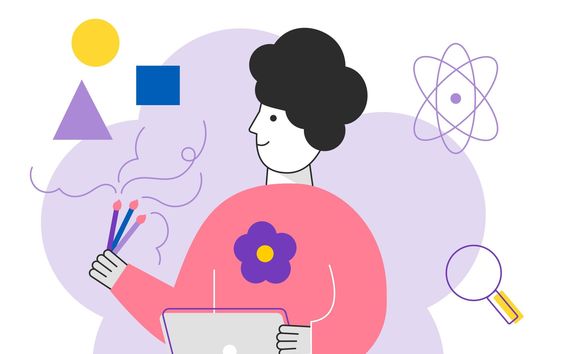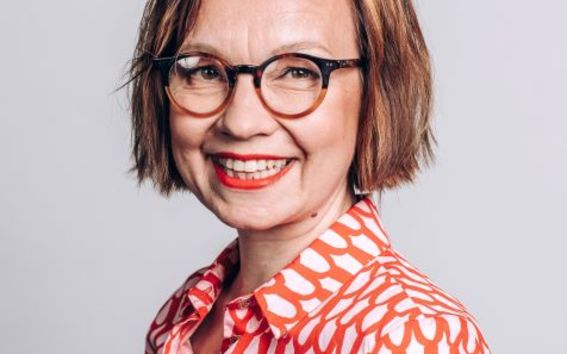Wantrepreneurs and other dreamers
There is a lot of hype about dream jobs and following your passions but in reality many people have trouble realizing their career desires. Paradoxically, the pressure for being self-directed and entrepreneurial can be part of the problem.

Career inaction is a common phenomenon. It refers to situations where one fails to act on one’s career desires for a prolonged period of time. Perhaps you have been unhappy with your job for years or dreaming about turning your passion into a career but have stayed put. Or you might be a so-called wantrepreneur – always talking about wanting your own business but failing to get it going.
While some dreams will always remain out of our reach, failing to realize important career desires can have serious consequences. Career dissatisfaction takes its toll on health, wellbeing, and performance.
Difficult decisions
There are obviously many reasons why we fail to realize our career dreams. Some of them are out of our hands, such as various economic and social barriers. When it comes to career inaction, the problem lies in decision-making difficulties.
Career decisions are some of the most important decisions we make in life and also among the most difficult. Such decisions are very complex as we are faced with multiple options and uncertainty about the outcomes.
Moreover, we may have only a vague idea as to what we desire and would need to take many steps to realize it. If the desired change differs considerably from our existing field, the change may feel too big or time-consuming to tackle. The current situation also plays a role as there are always some reasons that make us stay.
3 reasons for inaction
Both the difficulty and uncertainty result in the very human tendency to delay decision-making and avoid taking action. Based on research by Marijke Verbruggen and Ans De Vos, there are three reasons why this happens:
- Fear & anxiety – The difficulty of the decision naturally causes fear and anxiety despite the desire to change. Avoiding action is a common way to reduce such negative emotions.
- Short-term efforts vs. long-term gains – Difficult decisions call for many steps but we automatically see the cost and effort they require in the short-term and have harder time envisioning how they will pay off later.
- Cognitive overload – Decision difficulty places high cognitive demands on us and leads to inaction to alleviate the pressure.
All of these reasons are normal and natural human processes. However, as they are subconscious, we are not aware of their influence on us and tend to unnecessarily blame ourselves. Unfortunately, regret and self-blame further strengthen inaction and thus create a vicious cycle.
4 ways for moving forward
Paradoxically, the societal pressure for being self-directed and entrepreneurial and living our best lives can have a paralyzing effect on us. This is because such pressures make career decisions even more complex and cognitively demanding.
So if you find yourself stuck, the first step is to become aware of the normal human tendencies that cause inaction. Then, try one of the following ways to help you move forward:
- Re-evaluate your career desire Assess the pros of the current situation and possibilities for job crafting, weigh the costs of staying put, clarify the nature of your career desire and develop concrete options
- Reduce normal fear Talk to friends and family, join/create a peer group or talk to a career coach
- Reassess the costs and benefits Consider the short-term efforts required but focus on envisioning the long-term gains
- Break it down Reduce the demands by identifying small steps you can take to clarify your options and test your ideas
It is true that self-leadership is an important career competence to cultivate but it doesn’t work without self-awareness. A better understanding of our very human tendencies for inaction can, in fact, nudge us forward.

Kirsi LaPointe, D.Sc. works as a senior advisor at Aalto University's Career Design Lab. She develops and facilitates programs to support Aalto students and alumni in pursuing meaningful and sustainable careers.
Kirsi's expertise focuses on career transitions, identity and meaningful work. She is inspired by creative and critical approaches to change including narrative, design, mindfulness and arts-based methods.
Show other posts from this blog

Itsensä johtaminen ja uramuotoilu - taitoja, joilla rakennat kestävää ja merkityksellistä työelämää
Työelämän murros nostaa esille kaksi metataitoa, itsensä johtamisen ja uramuotoilun, joiden hallinta on edellytys merkitykselliselle uralle.
Työ muuttuu – pysyykö ajattelumme mukana?
Teknologian muuttaessa työntekoa suurin haaste on ajattelullinen. Kun päästämme irti vanhoista oletuksista, luomme tilaa uuden oppimiselle.
Making a difference with your difference
Staying true to yourself is one way to drive your career and quietly resist the dominant culture and persistent inequalities.